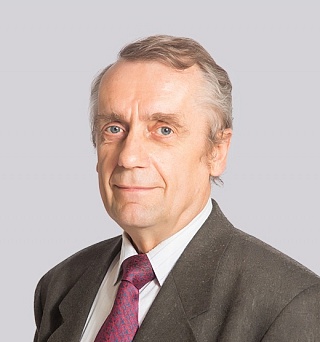Entrepreneur Bites Back at Apple in Trademark Dispute
4 July 2025
Apple Inc. is monitoring its rights in Russia, though with a time lag. Back in 2018, a Russian entrepreneur obtained registration No. 670287 for classes 20, 29, 30, 35, and 41. In early 2024, Apple Inc. appealed the registration, stating that the disputed trademark is confusingly similar to several of Apple’s trademarks, including Nos. 94833 and 557834, among others.

The similarity concerns either the word “apple” or the image of a bitten apple. Both are protected in Russia either individually or in combination. The appealed trademark creates false associations with the Apple company and thus misleads consumers. The use of a designation with an evident anglicized origin increases the likelihood of confusion.
The trademark owner objected, stating that, in their opinion, Apple Inc. is not interested in the appeal, as it has not conducted any business in Russia for at least two years and, therefore, should not be considered to have a vested interest. The existence of the Russian trademark does not hurt its business. Additionally, the disputed trademark is registered in Classes 20, 35, and 41, which have no relation to Apple Inc.’s business.
Apple Inc. explained that the existence of a registered trademark(s) sufficiently justifies its interest. The law does not define who is an interested person, nor does it specify limitations on types of interest.
The Chamber of Patent Disputes examined the arguments of both parties and concluded that the compared trademarks are confusingly similar. Regarding Classes 20, 35, and 41 (above), which goods are not represented on the Russian market, the issue of trademark use is not subject to examination at the hearing. Finally, Apple’s appeal was fully satisfied on March 15, 2024.
It would seem that the situation is clear, but the entrepreneur has appealed against the Chamber’s decision to the IP court. The pivotal point in the plaintiff’s complaint was that Apple failed to prove its interest in canceling the trademark. Again, the plaintiff insisted that Apple has not conducted any activity on Russian territory since 2022. Therefore, Apple’s appeal against the registration is an abuse of right. There is also a difference in the visual length and color of the compared designations. Consequently, the compared designations produce a different visual impression.
The plaintiff pointed out that there was a long coexistence of the trademarks during which they developed their business and sold fruit products. This is a reminder for trademark owners to be more vigilant about the emergence of competing trademarks.
The arguments brought to the court by the plaintiff were exhausted. The Patent Office naturally requested that the court dismiss the claims.
The court delved into a lengthy exposition of arguments presented by Apple to the Patent Office, as well as those of the Patent Office dismissing the appeal. The court agreed with the Patent Office that Apple Inc. is an interested party in the case because it owns a series of cited trademarks. The absence of business activity is of no importance and does not preclude Apple Inc. from being an interested person. Apple’s decision to suspend its activity does not deprive it of its right to protect its trademarks. The use of the trademarks is not examined by the patent office or evaluated in the present case, and it is not essential for recognizing the interest in Apple’s appeal against the trademark. Suspension of business in 2022 does not limit future use of Apple’s trademarks in Russia.
Regarding the abuse of rights raised by the plaintiff, the court explained that an abuse of rights should be sufficiently evident, and a conclusion about it should not be based on supposition.
The court presented several interesting arguments justifying the cancellation of the trademark, even after it coexisted with the other trademark for several years, which deserves a separate explanation. As a result, the court fully upheld the Patent Office’s decision of January 16, 2025.
Even though the court dotted all the I’s, the entrepreneur filed a cassation complaint to the Presidium of the IP court. They wanted to appeal the judgment of the first-instance court and have the case re-examined by the Chamber of Patent Disputes. In the complaint, the plaintiff disagreed with the previous court’s conclusions regarding the absence of abuse of rights on the part of Apple.
To assert their position, the plaintiff complained that the first-instance court had refused to hear an audio recording made during the examination at the Chamber of Patent Disputes, where someone had stated that Apple appealed against the trademark “out of spite.” Additionally, the plaintiff objected to everything briefly described above. The cassation court rehashed the details of the examination by the Patent Office and by the first instance court. It stated that the right of a senior trademark to appeal against a junior trademark is one of the ways to protect the senior trademark, including from its dilution.
Suspension of business does not suspend the protection of a trademark. The trademark owner not only protects their interest but also the perception of the trademark by the consumer. The suspension of the movement of goods through official channels doesn’t need to influence the perception of the trademark.
Finally, the court upheld the judgment of the first instance court. Apple proved too challenging for the entrepreneur.
To access this website, we request that you read and accept the Terms of Use.











